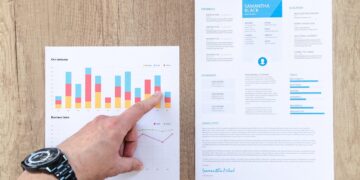Maximize Your Tax Refund: Insider Tips for Efficient Filing
As tax season approaches, the scramble begins to organize documents, receipts, and other financial information. Filing taxes can be daunting, but with the right knowledge and strategies, you can maximize your tax refund, minimize your stress, and ensure the process is as efficient as possible. In this in-depth guide, we’ll explore proven tactics and answer common taxpayer questions to help you navigate the complexities of tax returns, ensuring you leave no stone unturned in securing your deserved refund.
Understanding the Basics of Tax Filing
To begin, it’s essential to understand the fundamentals of tax filing, including the different forms, deadlines, and potential deductions. Without this foundational knowledge, taxpayers could miss out on significant refund opportunities or, worse, file incorrectly and face penalties.
Key Forms and Deadlines
Starting with the basics: the primary form for individual taxpayers is the IRS Form 1040. For those who are self-employed, additional forms such as Schedule C are necessary. The typical deadline for filing your tax return is April 15, unless it falls on a weekend or holiday, in which case it’s the next business day.
Common Deductions and Credits
Understanding deductions and credits is crucial for maximizing your refund. Common deductions include charitable donations, state and local taxes (SALT), and mortgage interest. Tax credits, such as the Earned Income Tax Credit (EITC) and Child Tax Credit, can directly reduce the amount of tax you owe, sometimes turning into a refund.
Strategies to Maximize Your Tax Refund
With the basics covered, let’s dive into strategies that can help you increase your refund or reduce tax liability.
Double-Check for Eligible Deductions and Credits
Often, taxpayers miss deductions or credits simply because they aren’t aware of their eligibility. Review the latest tax laws each year, as they can change and introduce new opportunities for savings. If needed, consult a tax professional who can provide tailored advice based on your financial situation.
Contribute to Retirement Accounts
Contributions to qualified retirement accounts such as a traditional IRA or 401(k) can be deducted from your taxable income. Not only does this help you save for the future, but it also reduces your current tax burden, possibly leading to a higher refund.
Optimize Your Filing Status
Your tax filing status can significantly affect your tax liabilities and potential refund. For instance, if you are married, consider whether filing jointly or separately is more beneficial to your financial scenario. Single taxpayers might benefit from filing as Head of Household if they meet certain criteria, potentially resulting in lower taxable income and a higher refund.
Efficient Filing Practices
Efficiency in filing not only simplifies the process but also ensures accuracy and timeliness, which are crucial to avoid penalties and delays.
Organize Your Documents Early
Start collecting necessary documentation as early as possible. This includes your W-2s, 1099s, receipts for deductible expenses, and records of any eligible credits. An organized record-keeping system can save you time and stress as the filing deadline approaches.
Use Reliable Tax Preparation Software
To ensure accuracy and ease during the tax preparation process, consider using reputable tax software. These tools are designed to guide users through their tax returns, ensuring all the correct information is captured and maximizing potential refunds. They can also alert you to possible deductions and credits you might not have considered.
Consider Professional Help
If your financial situation is complex, involving multiple income streams, investments, or potential deductions, it might be worthwhile to consult with a tax professional. Their expertise can not only boost your refund but also help you plan better for future tax scenarios.
Common Tax Filing Questions Answered
Let’s address some frequently asked questions about tax filing:
What should I do if I make a mistake on my tax return?
If you realize that you’ve made a mistake after submitting your tax return, you can file an amended return using Form 1040-X. It is essential to correct errors as soon as they’re discovered to avoid possible penalties.
How can I track my tax refund?
The IRS provides a tool called ‘Where’s My Refund?’ on its official website, which updates status information daily. This tool allows taxpayers to see the estimated date when their refund will be processed and issued.
Is professional tax help worth it?
The value of professional tax help depends on the complexity of your financial situation. If you have straightforward finances, software may be sufficient. However, for those with more complex situations, a professional can provide invaluable guidance and maximize refunds.
Conclusion
Maximizing your tax refund while ensuring an efficient filing process is achievable with the right knowledge and strategies. From understanding essential deductions and credits to utilizing effective filing practices, your efforts can lead to substantial financial benefits. Stay informed, organized, and proactive to make the most of this tax season.



























































